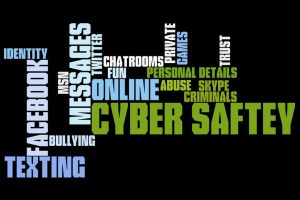 Almost all cyber-crime is about making money for the crooks. Often this involves stealing valuable information that can be sold. But many criminal gangs are going straight for the cash, and often this involves bank and financial account fraud or financial account access.
Almost all cyber-crime is about making money for the crooks. Often this involves stealing valuable information that can be sold. But many criminal gangs are going straight for the cash, and often this involves bank and financial account fraud or financial account access.
Below we have a list of strategies you can use to protect your financial resources.
- Use a credit card instead of a bank debit or checking account card when shopping online, or even when shopping in person or dining out. With the amount of skimmer fraud happening at gas stations, stores, and restaurants, a credit card protects you against fraudulent activity, from the first dollar. A bank card does not offer the same protection.
- Never give your bank account number or credit card number over the phone to anyone who called you. There is no way for you to know if they are really who they claim to be, and caller ID can be and often is spoofed by scammers.
- This includes people representing themselves as “tech support” from Microsoft or anyone else.
- Also, beware of calls from “law enforcement” officers who try to get you to send bail money using MoneyPak or Green Dot prepaid cards. These calls are always a scam.
- Monitor your bank accounts online at least weekly, or even daily. Make it a habit.
- When creating a password for your financial accounts, make them longer than twelve characters, and unique to this account.
- Never give this password to anyone.
- Beware of phishing emails that appear to come from your bank that require you to log in to fix a problem.
- Never click on a link in any email to log in to your account. Type the address in manually, or use a favorite or shortcut that you created.
- Make a list of your bank and investment accounts, but do not store this list on any computer, unless it is encrypted. Or use an online “vault” service. Or use paper and keep it locked in a safety deposit box.
- In addition to account numbers, include bank phone numbers, and any security or identity information, including passwords, two-factor systems, and secret questions and answers.
- Set up any additional security your financial services providers offer, including:
- Two-factor authentication
- Telephone call-back
- Real-time transaction alerts via SMS text message or email.
- Limiting transaction size if you are not in the bank in person.
- Requiring a callback for any EFT or wire-transfer requests.
- Place a credit freeze on your credit report. You will need to do this for each of the three credit bureaus, Equifax, Experian and Transunion. This limits the ability of identity thieves to open new lines of credit in your name.
- You can also place a fraud alert on your credit report. This will need to be renewed every 90 days, but forces a business to verify your identity before extending credit.
Hopefully you can use some of these ideas to safeguard your financial accounts. In our next post, we will be looking at ways to protect your personal information.
Share
13
MAR
MAR




About the Author:
I am a cybersecurity and IT instructor, cybersecurity analyst, pen-tester, trainer, and speaker. I am an owner of the WyzCo Group Inc. In addition to consulting on security products and services, I also conduct security audits, compliance audits, vulnerability assessments and penetration tests. I also teach Cybersecurity Awareness Training classes. I work as an information technology and cybersecurity instructor for several training and certification organizations. I have worked in corporate, military, government, and workforce development training environments I am a frequent speaker at professional conferences such as the Minnesota Bloggers Conference, Secure360 Security Conference in 2016, 2017, 2018, 2019, the (ISC)2 World Congress 2016, and the ISSA International Conference 2017, and many local community organizations, including Chambers of Commerce, SCORE, and several school districts. I have been blogging on cybersecurity since 2006 at http://wyzguyscybersecurity.com